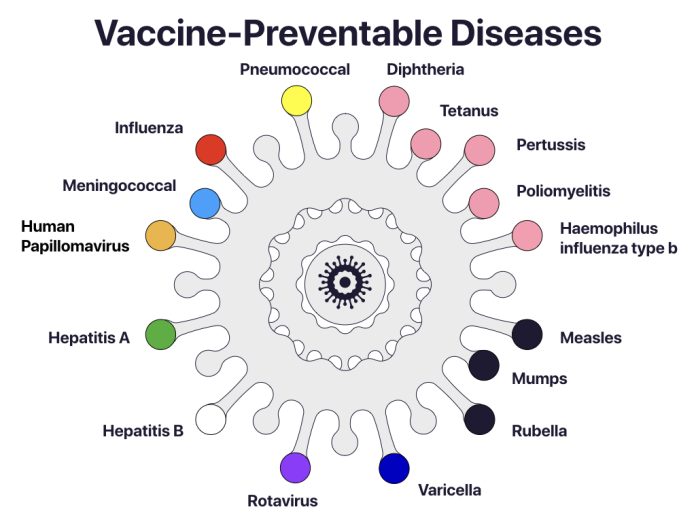Global immunisation efforts have saved at least 154 million lives -equivalent to 6 lives every minute of every year, in the past 50 years, according to a World Health Organisation study published by The Lancet on Wednesday.
The study showed that immunisation is the single greatest contribution of any health intervention to ensuring babies not only see their first birthdays but continue leading healthy lives into adulthood.
Of the vaccines included in the study, the measles vaccination had the most significant impact on reducing infant mortality, accounting for 60 per cent of the lives saved due to immunisation.
The measles vaccine will likely remain the top contributor to preventing deaths in the future, according to a joint statement by WHO, the United Nations Children’s Fund, Gavi, the Vaccine Alliance, and the Bill & Melinda Gates Foundation.
World Immunisation Week is a global public health campaign held yearly from April 24-30, to raise awareness and increase coverage of immunisation against vaccine-preventable diseases around the world.
The study is the most comprehensive analysis of the programme’s global and regional health impact over the past five decades.
“Over the past 50 years, vaccination against 14 diseases (diphtheria, Haemophilus influenzae type B, hepatitis B, Japanese encephalitis, measles, meningitis A, pertussis, invasive pneumococcal disease, polio, rotavirus, rubella, tetanus, tuberculosis, and yellow fever) has directly contributed to reducing infant deaths by 40 per cent globally, and by more than 50 per cent in the African Region,” the statement noted.
“Vaccines are among the most powerful inventions in history, making once-feared diseases preventable,” said WHO Director-General, Dr Tedros Ghebreyesus. “Thanks to vaccines, smallpox has been eradicated, polio is on the brink, and with the more recent development of vaccines against diseases like malaria and cervical cancer, we are pushing back the frontiers of disease. With continued research, investment, and collaboration, we can save millions more lives today and in the next 50 years.”
The study found that for each life saved through immunisation, an average of 66 years of full health were gained – with a total of 10.2 billion full health years gained over the five decades. As a result of vaccination against polio, more than 20 million people can walk today who would otherwise have been paralysed, and the world is on the verge of eradicating polio, once and for all.
“These gains in childhood survival highlight the importance of protecting immunisation progress in every country of the world and accelerating efforts to reach the 67 million children who missed out on one or more vaccines during the pandemic years,” it stated.
The study highlighted that fewer than five per cent of infants globally had access to routine immunisation when EPI was launched.
It said 84 per cent of infants are now protected with three doses of the vaccine against diphtheria, tetanus and pertussis – the global marker for immunisation coverage.
“Nearly 94 million of the estimated 154 million lives saved since 1974, were a result of protection by measles vaccines. Yet, there were still 33 million children who missed a measles vaccine dose in 2022: nearly 22 million missed their first dose and an additional 11 million missed their second dose.
“Coverage of 95 per cent or greater with two doses of measles-containing vaccine is needed to protect communities from outbreaks. Currently, the global coverage rate of the first dose of measles vaccine is 83 per cent, and the second dose is 74 per cent, contributing to a very high number of outbreaks across the world,” it said.
UNICEF Executive Director, Catherine Russell said, “Thanks to vaccinations, more children now survive and thrive past their fifth birthday than at any other point in history.
“This massive achievement is a credit to the collective efforts of governments, partners, scientists, healthcare workers, civil society, volunteers, and parents themselves, all pulling in the same direction of keeping children safe from deadly diseases. We must build on the momentum and ensure that every child, everywhere, has access to life-saving immunizations.”
The Chief Executive Officer of Gavi, Dr Sania Nishtar said the organisation was established to build on the partnership and progress made possible by EPI, intensifying focus on protecting the most vulnerable around the world.
“In a little over two decades we have seen incredible progress – protecting more than a billion children, helping halve childhood mortality in these countries, and providing billions in economic benefits.
“Vaccines are truly the best investment we can make in ensuring everyone, no matter where they are born, has an equal right to a healthy future: we must ensure these efforts are fully funded to protect the progress made and help countries address current challenges of their immunization programmes,” Dr Nishtar said.
Today, WHO, UNICEF, Gavi, and BMGF unveiled “Humanly Possible”, a joint campaign, marking the annual World Immunization Week
“It’s inspiring to see what vaccines have made possible over the last fifty years, thanks to the tireless efforts of governments, global partners, and health workers to make them more accessible to more people,” said the president of Global Development at the Bill & Melinda Gates Foundation, Dr Chris Elias.
“We cannot let this incredible progress falter. By continuing to invest in immunization, we can ensure that every child – and every person – has the chance to live a healthy and productive life,” Elias added.


